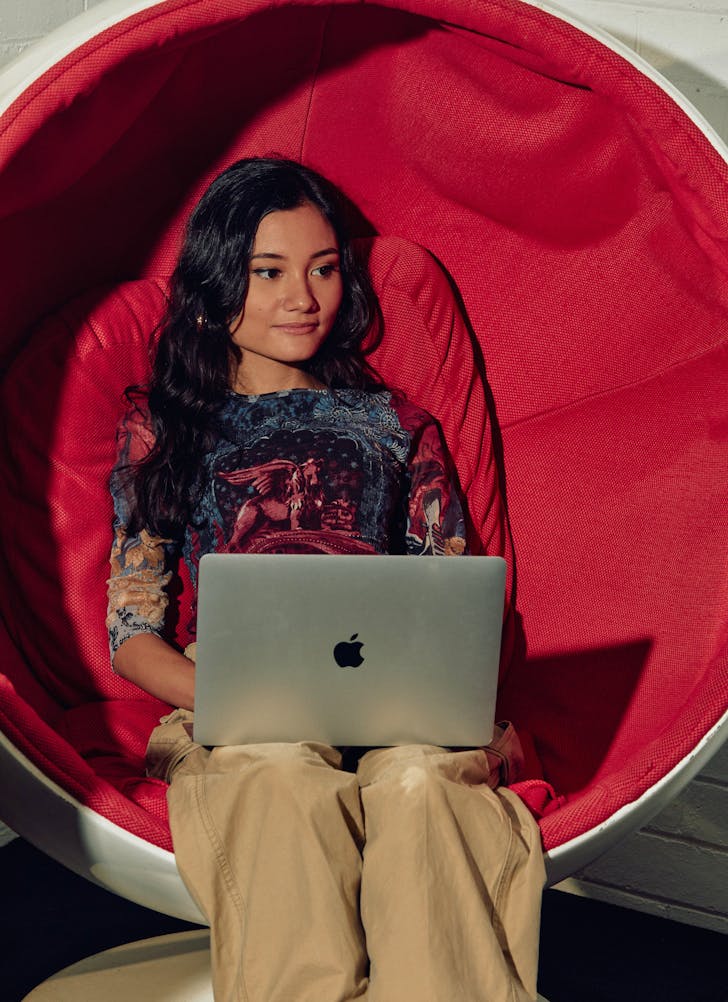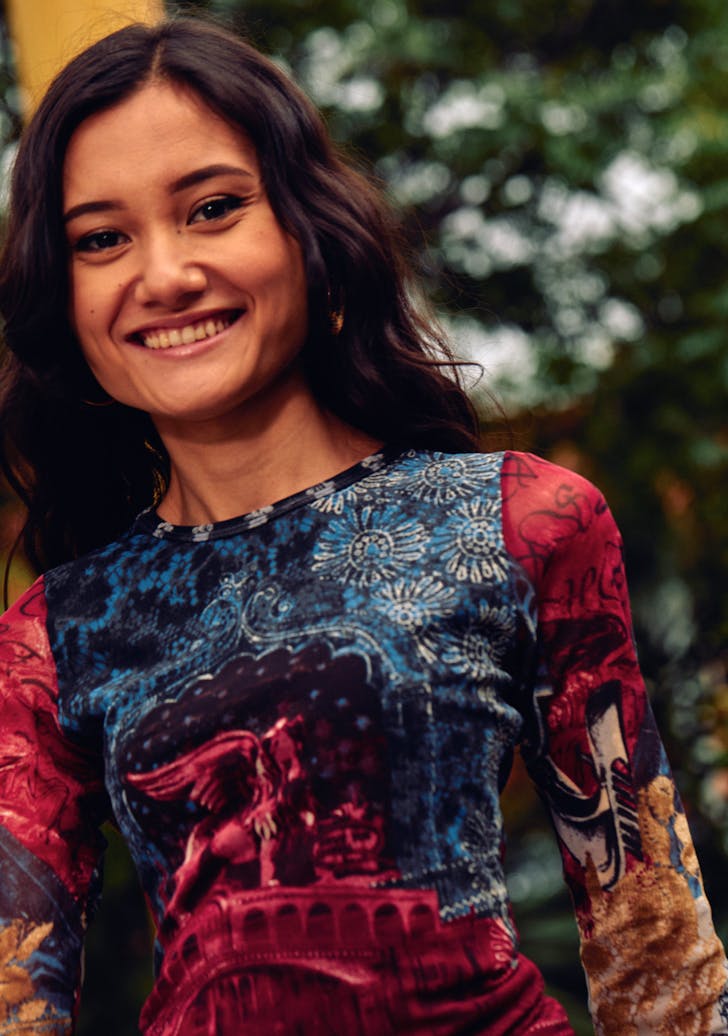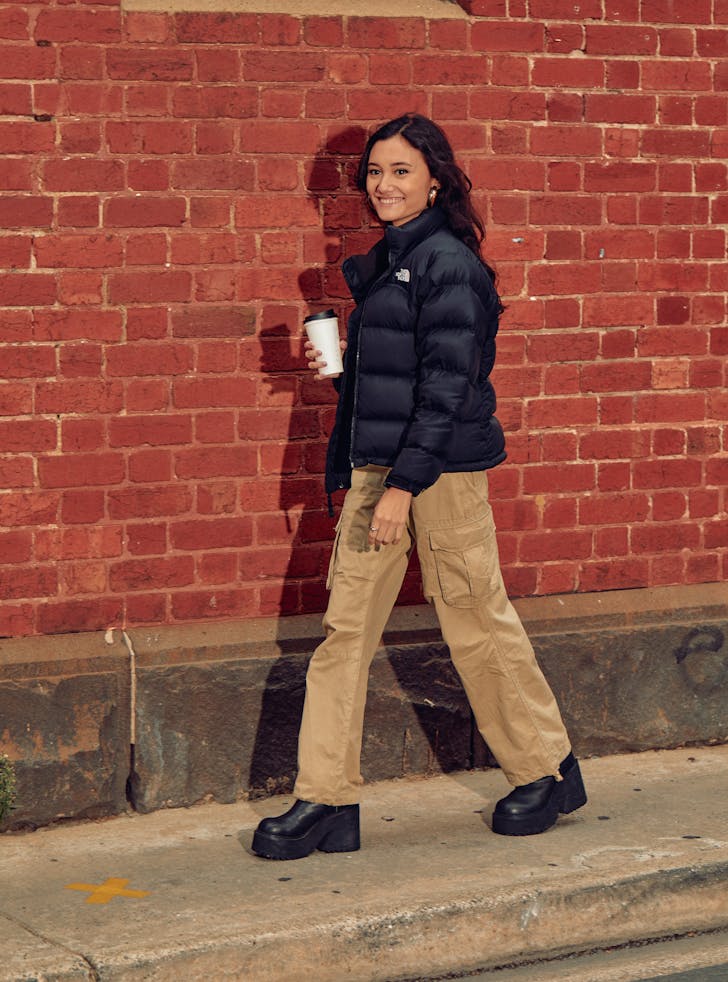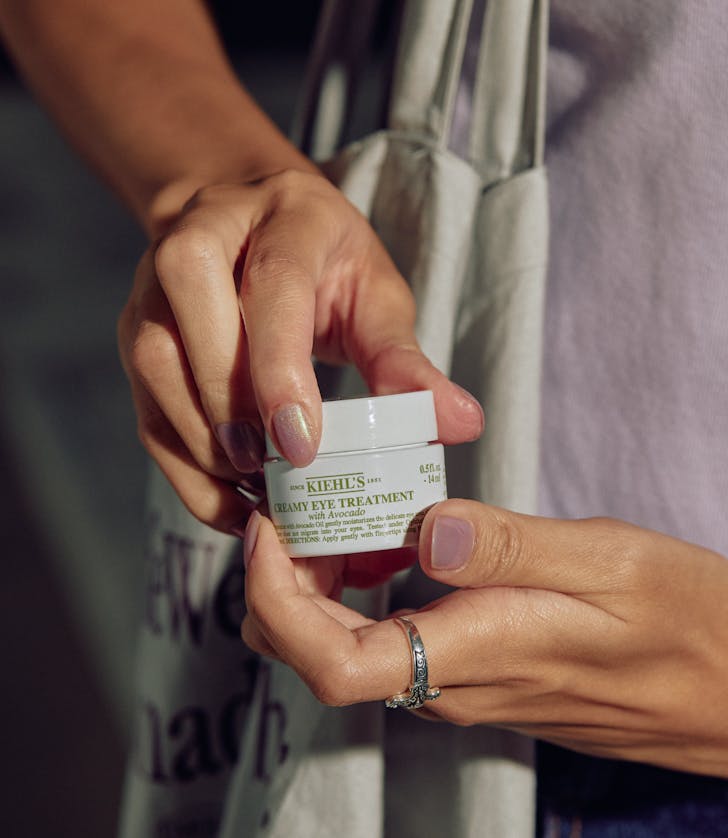Youth Advocate Yasmin Poole On Morning Rituals And Working Towards A Better Future
Have you ever wondered how someone landed that dream job? What about the jobs you never knew existed?
Oftentimes we're trotting down the career path laid out before us, gunning for that next job title on the org chart. It makes sense. But times are changing, and now more than ever, we're seeing people break away from the mould and build careers that are not only wildly impressive but ones that have a truly positive impact on the world and people around us. But how did they get there?
Welcome to 30 Faces, a celebration of 30 individuals changing the world by 2030. A destination to unearth their career journey, what fuels their passion, and to educate and inspire your own journey towards a future made better.
Here, we chat with youth advocate Yasmin Poole. We discuss everything from the moment she was awarded Youth Influencer Of The Year (alongside Lady Gaga, Oprah Winfrey and the founders of Black Lives Matter, may we add), to how she's working towards representation for all through the lens of intersectional feminism, and how she unwinds with a bit of hyper pop and self-care.
You wear so many different hats. Can you tell us about your career journey to date?
Growing up, I didn’t even realise that this type of work existed, let alone that I could do it! It started off with me volunteering at youth-led NGOs during my gap year after my retail shifts. The next year, I started to get more involved in youth advisory groups which made me think more deeply about whose voices are not included in decision-making and the barriers in place. In 2020, I spoke to the media for the first time and used that platform to emphasise young women’s perspectives on politics. Now, I’m an advocate, public speaker, on the boards of OzHarvest and YWCA Australia and a Consultant for the World Bank. Across this work, I’m passionate about intersectional feminism and considering how the structures around us privilege and oppress. I was awarded a Rhodes Scholarship this year, so I’ll be heading to Oxford University later this year to study intersectional public policy.

Can you tell us about the causes that you’re passionately fighting for and why they’re important to you?
I’m an intersectional feminist and am driven by the belief that we must create a world that ensures safety, respect and dignity for all. Intersectional feminism recognises that we cannot focus on gender by itself, but other factors of our lives such as race and class that shapes privilege and discrimination. My passion first started in representation: to call out the fact that our halls of Parliament do not look like the diverse society that we live in and fight for young women to be heard. But it isn’t just representation: we also need to do more across our schools, workplaces and politics to end sexual harassment and assault, which requires putting protections in place to stop these abuses of power. I am also passionate about better pay and working conditions for female-dominated industries, like care work, which is chronically underpaid.
Where does your inspiration to stand up for generational issues come from?
I remember doing a speech for young women of colour at the Parliament of Victoria, looking at the walls and realising that every single portrait was of an old white man. It looked completely different from the diverse faces in front of me. There are so many perspectives and views that have historically been ignored. But young people are the future and it’s essential that we’re in these spaces to drive Australia forward. I am not embarrassed to be young and embrace this perspective with pride. Generations — in their diversities — interact with the world differently and we need to listen to each other to move forward.

What has been your biggest ‘pinch me’ moment so far?
Receiving Youth Influencer of the Year by the Dr Martin Luther King Jr Center. I got the email telling me that I was selected by Bernice King, the daughter of Dr King. I thought it had to be spam because it was too good to be true! I was awarded alongside Lady Gaga, Oprah Winfrey and the founders of Black Lives Matter. Awards will never define my work and who I am, but it was a privilege to represent young diverse Australians there.
What advice do you give to younger women looking to enter politics or other male-dominated industries?
There is no one style of leadership. We are used to seeing masculine styles of leadership, like being a larrikin or the commander, and there is pressure to behave that way. I’ve learned over time that there is power in accepting who we are and exercising the leadership that feels authentic to us. I would also recommend finding mentors who can help you understand the system — good people who you respect. Finally, embrace your lived experience. I am a young Asian-Australian woman. I don’t downplay this or shy away from it because these parts of me have shaped my experience in the world. There is power in young people embracing their perspectives. They are not less valuable because of our age — they’re essential if we want to build an inclusive world.
What does a typical day look like for you?
I start by getting a hot chocolate with my boyfriend in the morning. We try to find a new cafe every day and have found some really cool ones — it’s Melbourne, after all! My day is usually working from home unless I’m speaking at an event. Things on the agenda that day could include board meetings, writing speeches and articles, doing work with the World Bank, responding to emails and adding my perspectives on social media. I also have to dedicate time to doing coursework for my Graduate Diploma of Legal Practice which I need to qualify as a lawyer, and it’s usually pretty dry! It’s not all work though. I love listening to her pop and finding cool independent electronic artists. My off time usually involves watching reality TV, playing The Sims and hanging out with my boyfriend. Then, I’m in bed by around 1am. That’s a quieter day though — on other days, I’m flying across the country for public speaking which is a lot more hectic.

How important is starting your morning right to feed your passion and energy throughout the day?
Slow mornings are so important for mental health. As an introvert, doing public speaking and really social activities often feel draining, so I use those mornings to wake up slow, relax my mind and watch videos that make me happy. I am also a night owl and my best work happens when the sun goes down, so my morning is a chance to charge my batteries.
You’ve been selected as part of the Urban List x Kiehl’s 30 Faces campaign that highlights 30 individuals working towards a better future by 2030. Can you share any exciting projects or what you have planned next?
The biggest thing I’m prepping for is my Master of Public Policy/Master of Women, Gender and Sexuality Studies at Oxford. In the meanwhile, I’m taking each day as it comes. Some goals this year is to run a mentorship program, launch a podcast on intersectionality and make my own music. So, watch this space!
Now, aside from your incredible career, let’s dig a little deeper into you. How do you like to spend your spare time?
I’m into electronic music like hyper pop and electronic ambience, Grimes, i9bonsai and oaf1. I found those genres during lockdown in 2020 and basically listened to them from the moment I woke up to when I went to sleep, so they’re really special to me. It quietens my mind and feels like a reset from everything going on. I’m also into streetwear so I really like browsing through Depop and Instagram and finding cool fits. I’m really into flare pants, platforms and spiky bobs at the moment.
Do you have a favourite Kiehl’s product that gives you a welcomed dose of self-care?
I’m enjoying the Creamy Eye Treatment With Avocado. It’s a nice touch to my skincare routine and makes my skin feel extra soft before putting on makeup the next day.
When it comes to carving out a better future, what do you see and hope for?
I want us to collectively understand how our history has shaped who has power and who does not. There are many moments in our history that I don’t think we have talked about enough, like the White Australia Policy or the fact that First Nations women and women of colour earned the right to vote many decades after white women. If we understand our history, we better understand the society that we live in today. If we understand how that history connects to structures, we have a better sense of how we can create a world that truly empowers us all.
Continue feeding your inspiration and discover more individuals shaping the next decade at 30 Faces, and uncover Kiehl’s commitment to the clean beauty movement and Future Made Better.
Editor’s note: This article is sponsored by Kiehl’s and proudly endorsed by Urban List. Thank you for supporting the sponsors who make Urban List possible. Click here for more information on our editorial policy.

